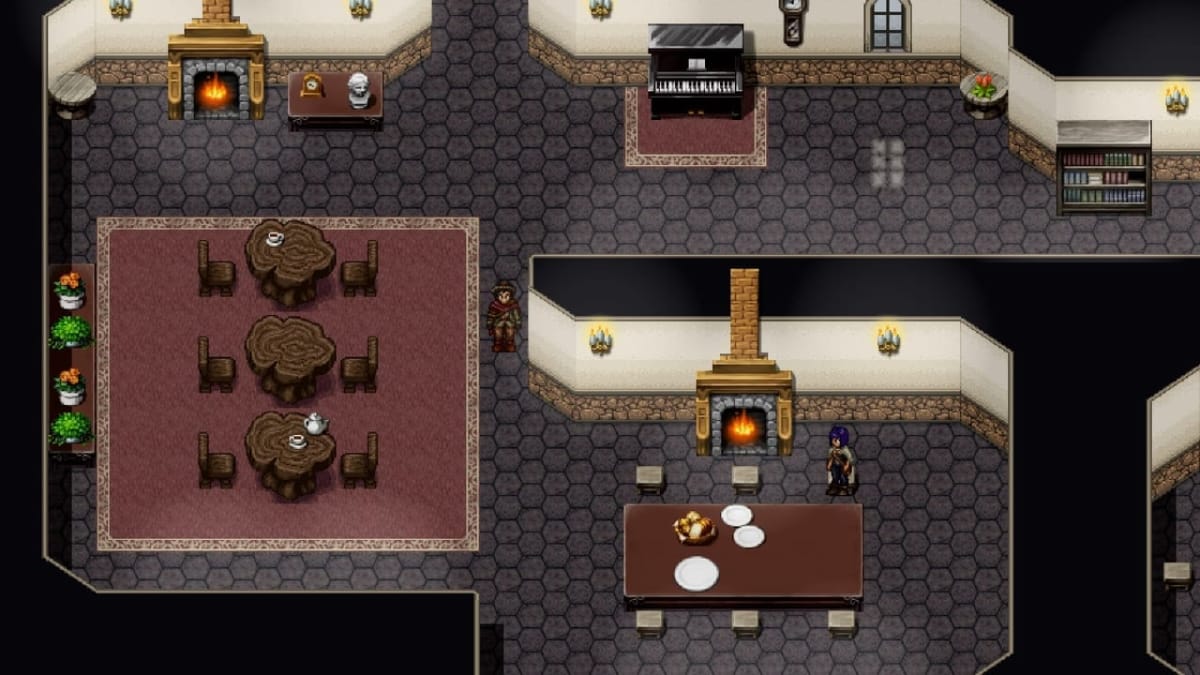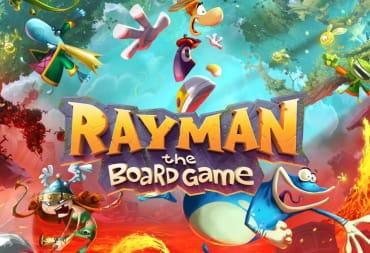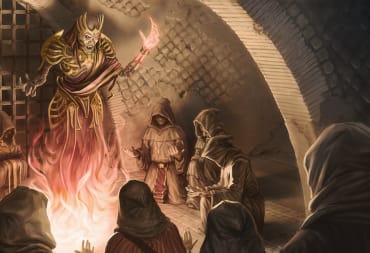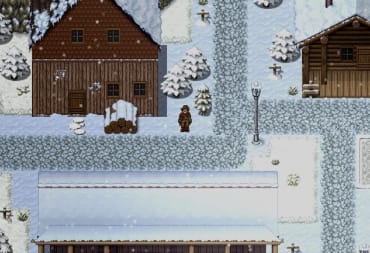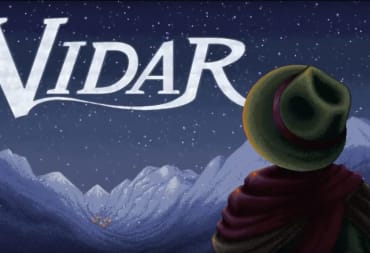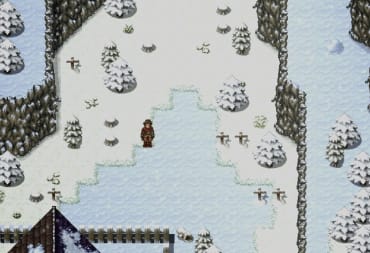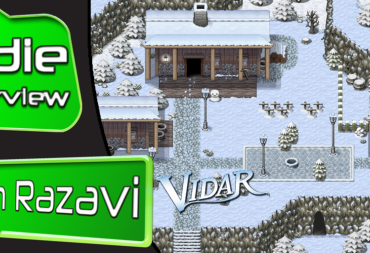Someone in town dies to a mysterious Beast every night, and it's up to you, the Stranger, to get to the bottom of it. Vidar's premise is a unique one and sets up an interesting dichotomy between rejecting the fear of killing off cherished characters and taking the time to invest in their development. To figure out what is going on, the Stranger has to delve into the cave of the Beast and solve puzzles so he can progress further into its depths.
Vidar has quite a bit of coverage here on TechRaptor. We interviewed lead developer Dean Razavi two years ago about the game and spoke with him at length again last week. Now that it has just hit Early Access, more people can give the game a try. Based on my impressions so far, it would be worth your while to see what Vidar has to offer.
The town is simple and filled with 24 unique characters—25 if you include the Stranger. Each of them has their own backstory, relationships with one another, different reactions based on certain events, reactions on who dies, and more. Talking to the characters gives plenty of context for what's going on in the town of Vidar. Their reactions and thoughts on the other characters in the town are interesting, giving players many different viewpoints to consider. Those various viewpoints offer insight into relationships and open up new connections you wouldn't have known by only talking to just one small group.
The variety of relationships on display in the town is astounding, with separated lovers who are not allowed to see each other, two ostracized sisters that only have each other, a poor family who struggles with their lot in life, and other immediately relatable and easily identified situations. Spending time getting to know each of them is interesting—even in my short, limited time—and it becomes genuinely heartbreaking and sometimes frustrating when they inevitably die.
My only criticism here is that it would be nice to see some more interactions between the people in town themselves, rather than having to learn everyone's thoughts yourself by walking around town to talk to them. Scenes of characters talking to one another are rare; at least it was in my playthrough.
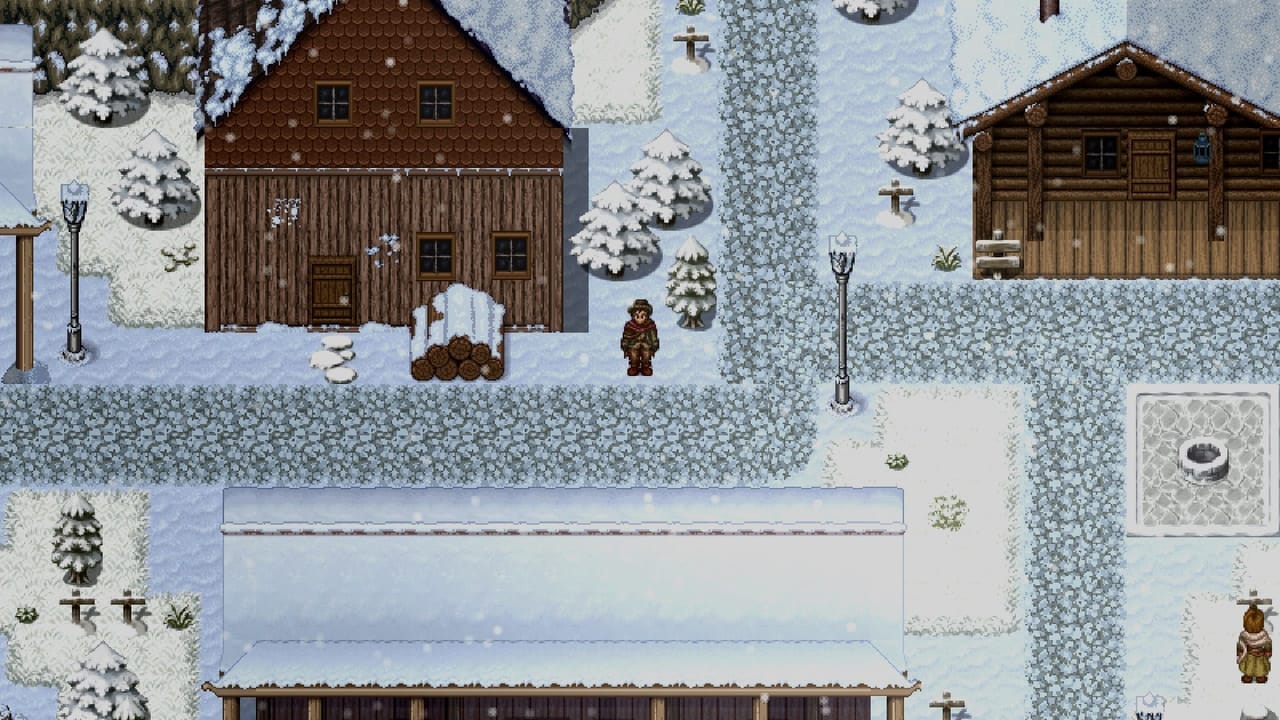
Death and mourning are some of the key themes explored in Vidar. Everybody in town will react differently to the death of another person, ranging from revealing hidden hatreds to hidden loves. There are characters that carry on like nothing happened, and others that struggle with what they're doing in their day-to-day living and become so devastated by the loss that they don't have much to offer the player in ways of conversation moving forward. It all feels incredibly realistic, even though it is portrayed with such an intense density where death is a daily, expected occurrence. It never feels contrived and is always easy to understand, as each character knows that it is only luck that keeps them alive for one more day.
It is truly luck, as the person who dies each day is random. You may be in the middle of a quest to only have it become obsolete because the person that gave it to you died. It makes playing the game again necessary as there is a lot that you can miss out on. There are some characters that, if you only play through it once, you will really never have any sort of interaction with because they were one of the first few killed off.
Sometimes that can be a bit frustrating. Bad luck can really affect your time with Vidar in that some of the early things you can participate in can vanish quite quickly if the right characters die right off the bat. I've only had my one playthrough so far, and I had some bad luck in the first few people that died as they were more involved in the early goings of the overall story and progression of the campaign. It definitely makes you focus on quests more than in other games, because in Vidar they function as more than just a list of chores and rewards; all are tied to giving more content to experience, more story and writing to absorb, or progressing through the Beast's cave.
The overall story arc in Vidar is tied to the Beast, which requires the Stranger to delve into his cave to learn exactly what's going on. You are given access to a new level of the cave the day after you complete the previous level, preventing you from rushing through several areas at once—and to of course maximize the killing off of characters. Each level is filled with a different set of randomized puzzles. There are different kinds of caves, like the Ice or Dark Cave, that have their own set of mechanics tied to them that will naturally get a little more involved the further you make it into the cave.
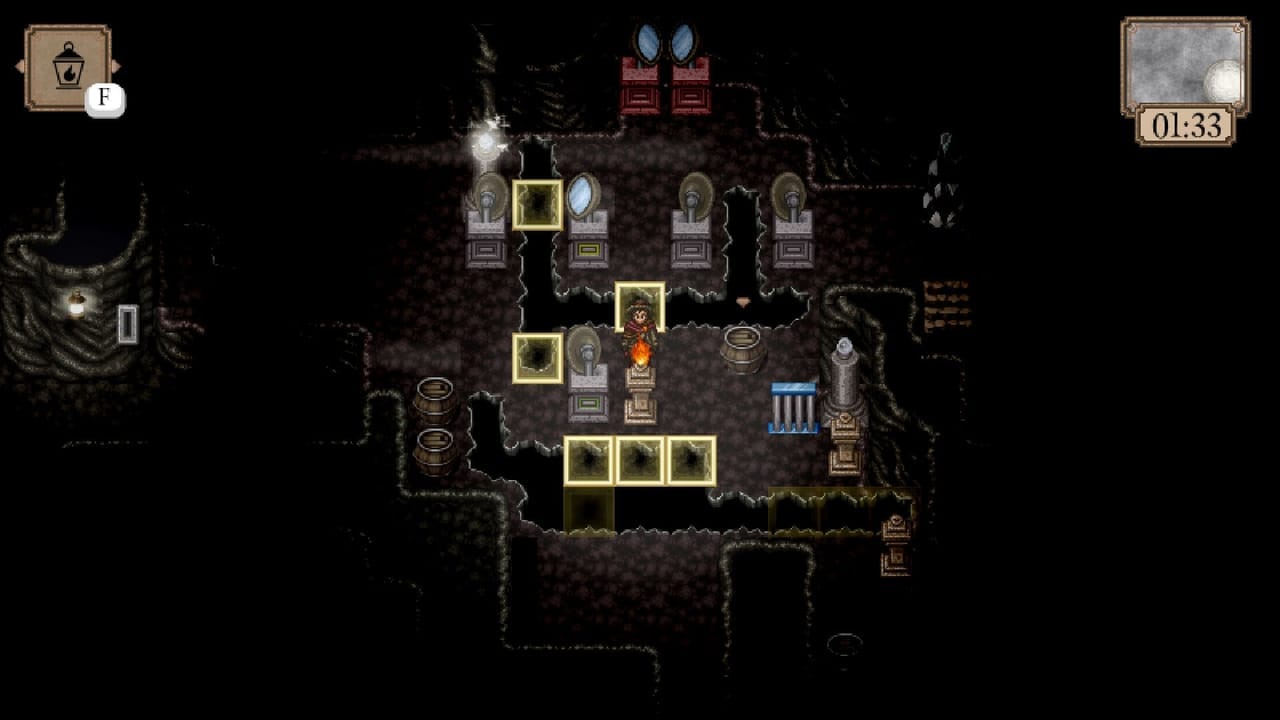
The difficulty goes up on a nice incline in each cave, at least with the puzzles I was given, and so does the introduction of mechanics. For example, you begin in the Ice Cave, where the puzzles are all based on you sliding on ice in a sort of maze to reach the end. Whatever row or column you step on is the one you will travel along from the direction you approached until you reach something to stop you, like a rock. If you approached from the left, meaning you are walking to the right, you'll keep on going right when on the ice until something stops you. That basic premise then gets new mechanics added onto it as the complexity grows, like needing to hit certain levers to bring gates in the ice up or down so you can use them to stop your movement or let you pass.
Each day there is a time limit you can spend in the caves as well. It starts out at ten minutes and can be increased with certain quests as you keep playing. You can choose which level of the cave you go to each time you enter, but it will cost you some time depending on your choice. For example, if you are four levels down in the cave, expect to lose two minutes of your time for starting on that level. The time restraint really annoyed me at first. As someone who likes to sit and think about puzzles, this type of restriction went against the grain for me. However, it grew on me quite a bit the more I played. Puzzle games are not really known for their tension or moment to moment gameplay, but racing against the clock to finish puzzles before the day was over was often very exciting. Luckily the game has plenty of checkpoints in the form of shortcuts you unlock once you complete a certain section or puzzle, so you can quickly return to that spot the next day.
Vidar is a game that requires multiple playthroughs, as you'll never get everything in one go. Plenty of quests won't be completed as it is impossible, and you will lose access to some dialogue, which will always vary some depending on who is still alive. Fortunately, the game is designed with this in mind, with a pool of puzzles it pulls from at the beginning of each playthrough and just the randomness of who and when someone dies. The randomness of the puzzles does not make the level layout awkward either, as one flowed seamlessly to the next in every area I encountered.
Many of my gripes with Vidar are smaller and should be hammered out as more updates get rolled out through Early Access. The UI is clunky and can be a pain to use and there are some other technical hiccups, but the developer is already in the process of fixing many of them. The content that is currently available and the core design of the game is all very enjoyable, which is the most important part anyway. Also included in those many updates is more content in the form of quests, dialogue, puzzles, and more. Vidar definitely seems to be doing Early Access right.
If you're interested in a game with a unique premise, great writing, and some interesting puzzles, Vidar is worth checking out. It's done something that is quite rare in that Vidar should be very appealing to both the narrative lovers and those that are all about gameplay. More often than not one is sacrificed for the other; in this case, not only does each side support each other, they are interwoven completely. If one side is lacking, it would show through the entire game. Vidar is definitely a game worth keeping an eye on.
Vidar was played on PC via Steam with a code provided by the developer.
Previews you can trust: To ensure you're getting a fair, accurate, and informed review, our experienced team spends a significant amount of time on everything we preview. Read more about how we review games and products.
Have a tip, or want to point out something we missed? Leave a Comment or e-mail us at tips@techraptor.net
